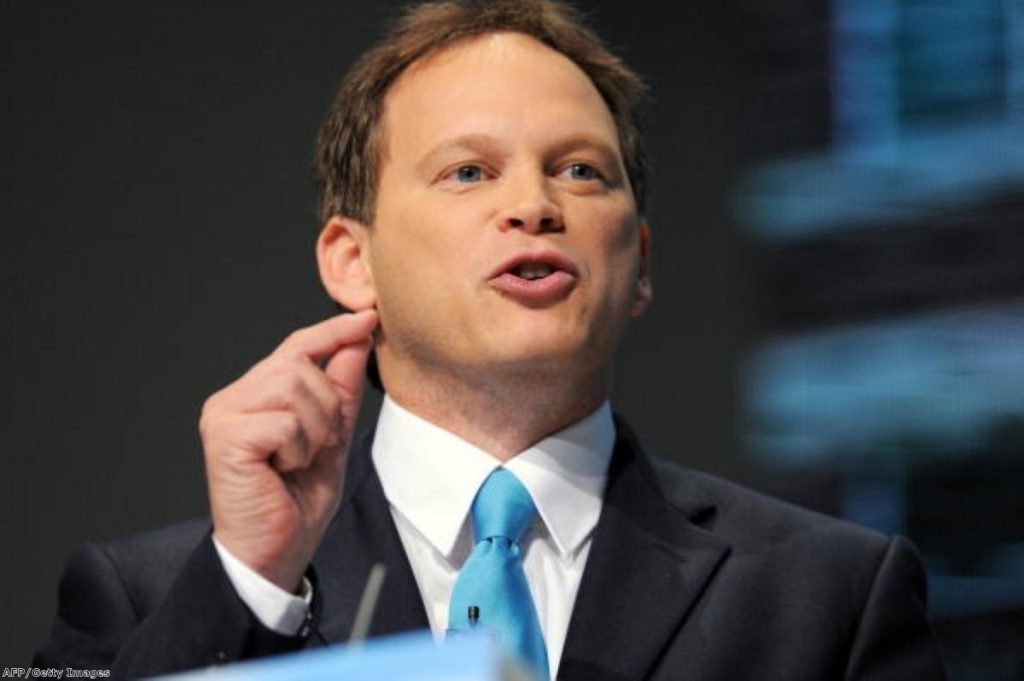The last week has perhaps been one of the most chaotic in recent British political history, as Boris Johnson becomes the latest beleagured Conservative party leader to be ousted by a dissatisfied party.
As of now, there are simply too many moving parts to predict Johnson’s successor with any certainty. The July 2022 contest appears the most open Conservative leadership battle ever.
Here is our run down on the 11 original runners and riders for the Tory throne.
1. Rishi Sunak – The front runner as of now – (Our rating of his prospects – 34/50)

After a couple of hectic years, there was initially some speculation as to whether Sunak may desire some family time away from the slings and arrows of public life.


The bookies favourite at the start of the year, Sunak’s image has been dented in part through by his association with the former regime, and in part from his own recent dramas. Like Johnson, Sunak received a fine for Covid rule-breaking. His share price has also suffered from revelations around his wife’s non-dom tax status, and his possession of a US green card. His position near the top of the Sunday Times Rich List may also prove problematic at a time when most in the country are stuggling with the cost of living.
However, the former chancellor is well-liked in the parliamentary party and has a strong chance of being supported by a number of MPs in the early rounds of the contest. He has good claim to still be the most polished performer on this list.
A recent snap poll also showed Sunak to be the only top leadership candidate with a chance of beating Labour at a general election. Sunak performed well in his last Commons appearance before his resignation. Could “Dishy Rishi”, held in high regard by much of the Tory grassroots and general public for so long, be regaining his mojo?
- Lack of Johnson collateral (4/10)
- Presentation (9/10)
- Perceived competence (9/10)
- Relationship with Conservative members: (6/10)
- Potential popularity with the public (6/10)
2. Penny Mordaunt – Talked up (30/50)

Once Theresa May’s defence secretary, and former celebrity TV diving contestant, Mordaunt has received a significant amount of attention over the past few days. The brexiteer trade minister has a low public profile but seems popular with party members as of now. While she did not quit as a minister during the Pincher scandal, it may be that she was unknown enough for this to matter less for her chances.
It is unclear whether she would secure the support of enough MPs to make a successful bid for leader. Her 2021 remarks to MPs that “transmen are men and transwomen are women” could also lead to some culture war tussles with fellow leadership rivals that may not bode well for her grassroots popularity.
- Lack of Johnson collateral: (7/10)
- Presentation: (6/10)
- Perceived competence: (5/10)
- Relationship with Conservative members: (7/10)
- Potential Popularity with the public: (6/10)
3. Tom Tugendhat – Ambitious but may have too many enemies – (Our rating: 27/50)

The current chair of the foreign affairs committee will position himself as the candidate of the Conservative left. Pending how Jeremy Hunt performs, this may give Tugendhat a starting basis of support.
A former soldier, Tugendhat has made no secret of his ambitions and he has a confident veneer that could work well for a leader. Whether he would cut through to ‘Red Wall’ voters is a whole another question that said.
Many MPs may also be wary of Tugendhat’s perceived priggishness, not least given his lack of government experience. A remainer and nephew of a European Commissioner, in the unlikely event that he got to the membership vote, he would likely face a backlash from the party grassroots over a perceived warmth to the EU. While many members might like an ex-soldier, this military appeal could be dented by his strong pro-EU record.
- Lack of Johnson collateral: (10/10)
- Presentation: (5/10)
- Perceived competence: (5/10)
- Relationship with Conservative members: (3/10)
- Potential Popularity with the public: (3/10)
4. Liz Truss – May struggle with the MPs (Our rating of her chances – 26/50)

Truss has long been one of the most talked-up candidates in this race, alongside the ex-chancellor, Rishi Sunak. Like the non standing Ben Wallace, her popularity has improved as Johnson’s fortunes have declined and the Ukraine crisis have put her centre stage.
Yet for a long-standing cabinet minister, Truss does not always present herself as smoothly as one might expect. She may also lack warmth with voters.
Her role as foreign secretary since last September’s reshuffle also means she has often been away from the centre of the Westminster action of late, flying back from the G20 as Johnson tendered his resignation.
Whilst she is popular with party members, it is questioned whether the ex-Lib Dem and erstwhile remainer-turned-arch-brexiteer has deep enough traction with Conservative MPs to do well in the early stages of the contest.
- Lack of Johnson collateral: (4/10)
- Presentation: (5/10)
- Perceived competence: (7/10)
- Relationship with Conservative members: (7/10)
- Potential Popularity with the public: (3/10)
5. Kemi Badenoch – An unashamed Conservative, too controversial? (Our rating of her chances- 29/50)

https://members.parliament.uk/
member/4597/portrait
A former levelling up and equalities minister, Kemi Badenoch is a fresh face in the mix from the right of the party. A short but impressive political career – elected to the Essex seat of Saffron Walden in 2017 she joined the front benches two years later.
Polling in second place in a candidacy survey conducted by ConHome, Badenoch is arguably an unexpected favourite. Despite not having the experience or prestige of some of the other front-runners, the right support could make her a real disrupter.
She took the helm of the so-called ‘war on woke’ and is often involved in culture related arguments which has got her into ‘hot water’ in the past. Her views are controversial, such as her belief that racial disparities are often overplayed and not structural. She
Badenoch is popular with some Conservative MPs but openly disliked by others, due to her strong opinions and harsh personal approach. She has so far garnered the support of 11 of them, including Michael Gove and Lee Anderson. Voters will be divided on her during this process – some argue she brings a fresh perspective to politics that we are yet to see in a PM, but for others this new take is off-putting.
- Lack of Johnson collateral: (6/10)
- Presentation: (6/10)
- Perceived competence: (6/10)
- Relationship with Conservative members: (7/10)
- Potential Popularity with the public: (4/10).
Withdrawals and eliminations
As of today, the following candidates have withdrawn from the race…
1) Rehman Chishti – received no MP support before the first round, so withdrew.
We said: Way too far below the radar – (Our rating of his chances – 18/50)

https://members.parliament.uk/
member/3987/portrait
A backbench MP for 12 years, he became a third-tier Foreign Office minister last week after the mass of resignations. He is very low-profile in comparison to some of the other contenders, which could either be his stumbling-block or work hugely in his favour.
Having backed Boris Johnson during his 2019 campaign, Mr Chishti’s support seemed to waiver, as in 2020 he resigned as No 10’s envoy on religious freedom in protest against plans to allow ministers to unilaterally rewrite the Brexit withdrawal agreement.
In his campaign video posted on Facebook and seemingly shot outside on a phone, he, like many of the other candidates, promises tax cuts and a fresh start without an explanation of how he plans to make this happen. He doesn’t seem to have garnered MP support as of yet, and seeing as the deadline is 6pm today it seems unlikely he will make it to the voting rounds.
- Lack of Johnson collateral: (7/10)
- Presentation: (1/10)
- Perceived competence: (2/10)
- Relationship with Conservative members: (3/10)
- Potential Popularity with the public: (4/10)
2) Grant Shapps – withdrew and gave his full support to Rishi Sunak
We said: Unlikely in a crowded field – (Our rating of his chances – 25/50)

The current transport secretary is a long standing cabinet minister having been Chairman of the Conservative party under David Cameron.
He is a polished performer in the Commons and competent under pressure during the most gruelling media interviews.
Shapps has launched his campaign by saying how much he likes Boris Johnson and he was one cabinet minister who didn’t resign in early July. His issue in this contest will be in gaining traction with MPs, many of whom will either back a front runner or a candidate from a particular wing of the party. It is unclear how many of them warm to Mr Shapps. If he secures the necessary nominations level, we don’t expect him to get through the early rounds of voting.
- Lack of Johnson collateral: (3/10)
- Presentation: (8/10)
- Perceived competence: (7/10)
- Relationship with Conservative members: (5/10)
- Potential Popularity with the public: (2/10).
3) Sajid Javid – A bit of an unexpected withdrawal. Was seen as a front-runner, but didn’t gain the nominations needed to progress.
We said : A plausible winner, but will need early momentum (Our rating – 31/50)

Sajid Javid became the first person of colour to hold one of the ‘Great Offices of State’ following his appointment as home secretary in 2018. He achieved fourth place in the 2019 leadership race, with his failure probably in part tied to his support of ‘Remain’ in 2016.
Considered a safe pair of hands, after resigning as chancellor in 2019 following a spat with Dominic Cummings, Javid was appointed to replace Matt Hancock after he resigned following evidence that he broke social distancing rules with a female aide. However, MP votes for a “safe” candidate could easily go to another MP should Javid fail to make his mark very early on in the race.
His media appearances are generally polished, and while just 18% of the public report liking him, that 33% are neutral means he has an opportunity to improve his likability.
Javid’s ascendancy to the top spot could yet still work with Conservative members, with him sitting at a respectable +43 in ConHome’s latest Cabinet league table.
- Lack of Johnson collateral: (5/10)
- Presentation: (7/10).
- Perceived competence: (9/10)
- Relationship with Conservative members: (6/10)
- Potential Popularity with the public: (4/10)
4. Nadhim Zahawi – Didn’t gain the needed 30 support votes in round one of voting.
We said: Strong candidate, but too close to Boris? (Our rating – 30/50)

Newly minted chancellor Nadhim Zahawi was propelled into the national spotlight as vaccines minister where he headed up the fastest Covid jab rollout in Europe. His regular broadcast appearances on behalf of the government even before being made a minister are a testament to his polished style of speaking.
A friendly figure, Zahawi spent many years on the backbenches. Having only entered government in the latter part of the last decade, Zahawi may have more MP friends than people expect.
However, Zahawi’s acceptance of promotion to the role of chancellor following Sunak’s shock resignation on Tuesday, quickly followed by his push to unseat Johnson on the next Wednesday evening has possibly coloured his reputation.
His compelling personal story, being an Iraqi-born Kurdish refugee turned chemical engineer turned cabinet minister, and credible demeanour could still help him cut through with MPs and party members.
- Lack of Johnson collateral: (3/10)
- Presentation: (7/10)
- Perceived competence: (9/10)
- Relationship with Conservative members: (6/10)
- Potential Popularity with the public: (5/10)
5. Jeremy Hunt- Knocked-out at the same time as Zahawi, for the same reason. Now backing Sunak.
We said: Yesterday’s man? – (Our rating of his chances – 28/50)

The erstwhile health and foreign secretary respectively, Hunt is clearly ambitious and has not been ruling out another bid for the top for some time. However Hunt’s fresh chances of success depend on whether the Tory left decides to unite around one candidate. Hunt has had a few years on the backbenches to cultivate potential MP backers, but this does not secure success for his candidacy.
If he gets to the final stage, it is still difficult to see the membership voting him in given his association with two previous administrations, and his strong support for remaining in the EU. With hostile voters moving from London en mass into his Surrey constituency, under the latest opinion polls, his seat would be gained by the Liberal Democrats. This is also as an “under-discussed” problem for Mr Hunt.
- Lack of Johnson collateral: (10/10)
- Presentation: (7/10)
- Perceived competence: (7/10)
- Relationship with Conservative members: (2/10)
- Potential Popularity with the public: (2/10)
6. Suella Braverman – eliminated in round 2 as she received the lowest amount of votes. Now backing Truss.
We said: An interesting outsider – (Our rating of her chances – 26/50)

There is a track record of “wild card” contenders in many previous Conservative leadership races. Andrea Leadsom was not even in the Cabinet when she did well in 2016 before a blunder pushed her to step aside for Theresa May. Iain Duncan-Smith, David Cameron, and even Margaret Thatcher are all examples of “outsiders” who shot to the top. In this race, it is Braverman who may pose something of a surprise.
Her strong ‘anti-woke’ comments , tax cutting agenda, and arch ‘Leave’ background will make Braverman the candidate of the Tory right. This could well secure her an initial rump of MP votes. If Braverman is able to get early traction, it is possible that she could build momentum through the contest.
She may then be able to pivot to contrast herself, as the the real break from the past that the Conservative brand needs. As a mum of two young toddlers, she would be a very different prime minister to anything that has been seen before. It is possible that she could cut through to voters.
- Lack of Johnson collateral: (6/10)
- Presentation: (6/10)
- Perceived competence: (4/10)
- Relationship with Conservative members: (5/10)
- Potential Popularity with the public: (5/10)

